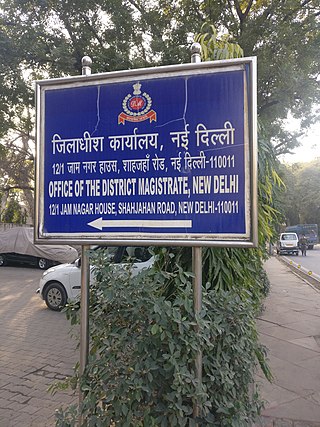Related Research Articles

The Regulation of Investigatory Powers Act 2000 (c.23) is an Act of the Parliament of the United Kingdom, regulating the powers of public bodies to carry out surveillance and investigation, and covering the interception of communications. It was introduced by the Tony Blair Labour government ostensibly to take account of technological change such as the growth of the Internet and strong encryption.

The Home Office (HO), also known as the Home Department, is a ministerial department of the British Government, responsible for immigration, security, and law and order. As such, it is responsible for policing in England and Wales, fire and rescue services in England, visas and immigration, and the Security Service (MI5). It is also in charge of government policy on security-related issues such as drugs, counter-terrorism, and ID cards. It was formerly responsible for His Majesty's Prison Service and the National Probation Service, but these have been transferred to the Ministry of Justice.

A justice of the peace is a judicial officer of a lower or puisne court, elected or appointed by means of a commission to keep the peace. In past centuries the term commissioner of the peace was often used with the same meaning. Depending on the jurisdiction, such justices dispense summary justice or merely deal with local administrative applications in common law jurisdictions. Justices of the peace are appointed or elected from the citizens of the jurisdiction in which they serve, and are usually not required to have any formal legal education in order to qualify for the office. Some jurisdictions have varying forms of training for JPs.

Law enforcement in the United Kingdom is organised separately in each of the legal systems of the United Kingdom: England and Wales, Scotland, and Northern Ireland. Most law enforcement duties are carried out by those who hold the office of police constable of a territorial police force.
A Borstal was a type of youth detention centre in the United Kingdom, several member states of the Commonwealth and the Republic of Ireland. In India, such a detention centre is known as a Borstal school.

The Scottish Office was a department of the Government of the United Kingdom from 1885 until 1999, exercising a wide range of government functions in relation to Scotland under the control of the Secretary of State for Scotland. Following the establishment of the Scottish Parliament in 1999, most of its work was transferred to the newly established Scottish Executive, with a small residue of functions retained by the Scotland Office.

His Majesty's Prison Service (HMPS) is a part of HM Prison and Probation Service, which is the part of His Majesty's Government charged with managing most of the prisons within England and Wales.

Prison reform is the attempt to improve conditions inside prisons, improve the effectiveness of a penal system, or implement alternatives to incarceration. It also focuses on ensuring the reinstatement of those whose lives are impacted by crimes.

Collector-cum-District Magistrate, also known as Deputy Commissioner in some regions, is an administrative officer in the governance and management of a district in India. As a member of the Indian Administrative Service (IAS), the District Magistrate plays a role in maintaining law and order, overseeing development initiatives, overseeing revenue administration, and ensuring effective implementation of government policies within the district. The District Magistrate comes under the general supervision of divisional commissioners. India has 766 districts as of 2023.

The Independent Police Complaints Commission (IPCC) was a non-departmental public body in England and Wales responsible for overseeing the system for handling complaints made against police forces in England and Wales.

The Department of Justice is a department of the Government of Ireland. It is led by the Minister for Justice. The department's mission is to maintain and enhance community security and to promote a fairer society in Ireland.

His Majesty's Chief Inspector of Prisons is the head of HM Inspectorate of Prisons and the senior inspector of prisons, young offender institutions and immigration service detention and removal centres in England and Wales. The current chief inspector is Charlie Taylor.

The Punjab Prisons is a correctional organization, a uniformed service and an attached department of the provincial Home Department in Punjab, Pakistan. The organization works under administrative control of the Additional Chief Secretary Home to Government of the Punjab, Pakistan. Functional head of the organization is Inspector General of Prisons who manages 43 prisons in the province. The organization is responsible for custody, control, care and correction of prisoners confined in various central, district and special jails in the province of Punjab, Pakistan).
An independent custody visitor is someone who visits people who are detained in police stations in the United Kingdom to ensure that they are being treated properly. Prisoner escort and custody lay observers carry out a similar function in relation to the escort of prisoners from one place to another, or their custody at court.
The Prison Commission was a public body of the Government of the United Kingdom established in 1877 and responsible for the operation of what is now the Scottish Prison Service. It was renamed the Prison Department in 1928, and was merged with the Scottish Office to become the Scottish Home Department in 1939.

Prisons in Ireland are one of the main forms of punishment, rehabilitation, or both for the commission of an indictable offense and other offenses.

The Prison Act 1877 was an Act of the Parliament of the United Kingdom of Great Britain and Ireland that aimed to alter the way in which British prisons were operated.
His Majesty's Inspectorate of Probation (HMIP) is a statutory body and independent UK inspectorate funded by the Ministry of Justice, formed in 1936.

The Criminal Justice Act 1991 is an Act of the Parliament of the United Kingdom. Most of it only applies to England and Wales, with certain clauses extended to either Northern Ireland or Scotland. The Act enabled the introduction of private prisons to the United Kingdom, attempted to reform the system of fines in England and Wales, established HM Inspectorate of Probation as a statutory body, and allowed for the Home Secretary to release foreign prisoners from prison to enable their deportation.
Deputy commissioner is a chief administrative, land revenue officer/collector and representative of government in district or an administrative sub-unit of a division in Pakistan. The office-holder belongs to the commission of Pakistan Administrative Service erstwhile DMG/CSP or the Provincial Management Service erstwhile Provincial Civil Service.
References
- 1 2 3 4 5 "The National Archives - Catalogue: Department code PCOM" . Retrieved 4 January 2011.
- 1 2 "The National Archives - Catalogue: Series reference PCOM 9" . Retrieved 4 January 2011.
- ↑ Prison Commissioners Dissolution Order 1963, S.I. 1963/597
- ↑ HC Deb 12 March 1963 vol 673 cc1241-4
- ↑ HC Deb 12 March 1963 vol 673 cc1251-313
- ↑ HL Deb 21 February 1963 vol 246 cc1441-87